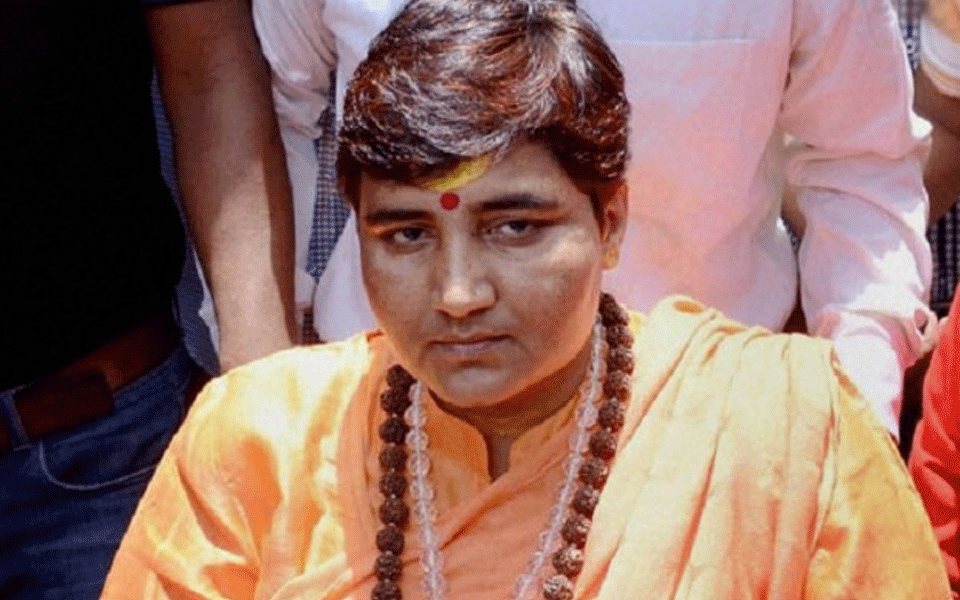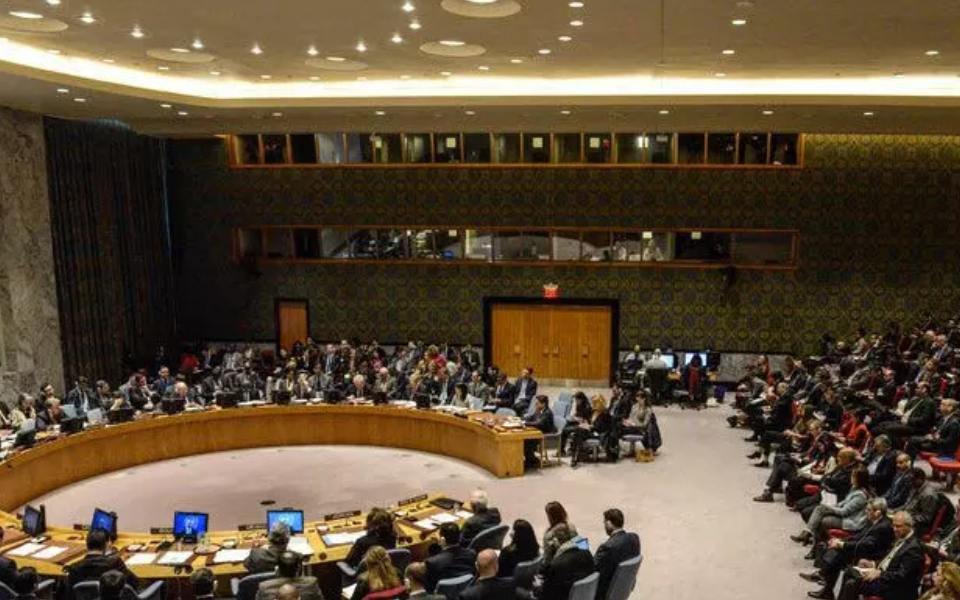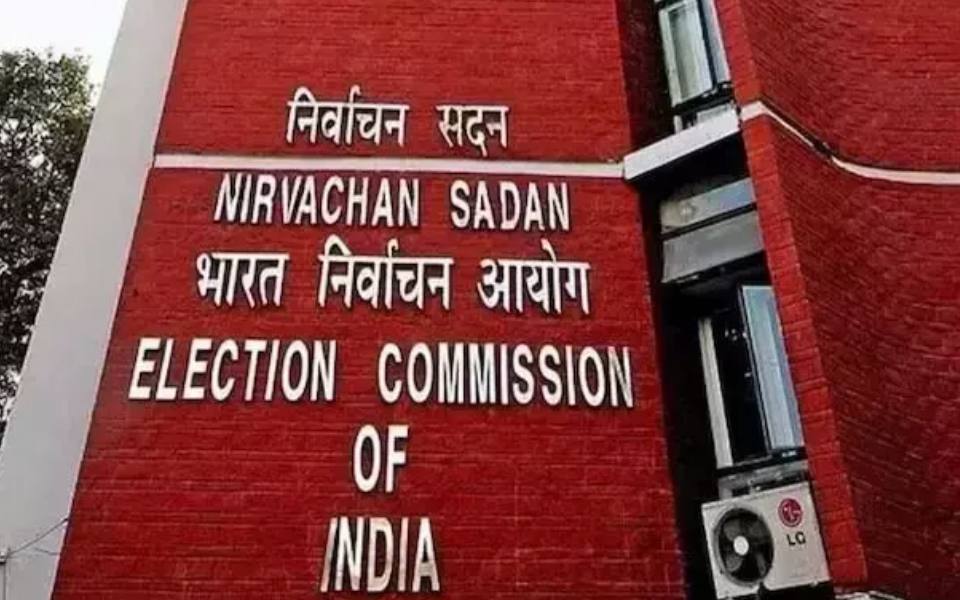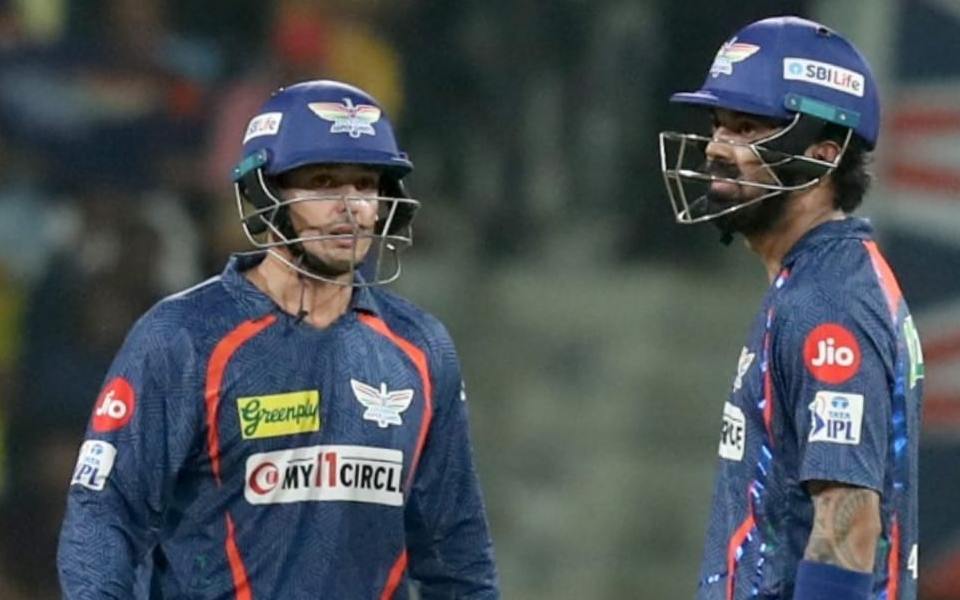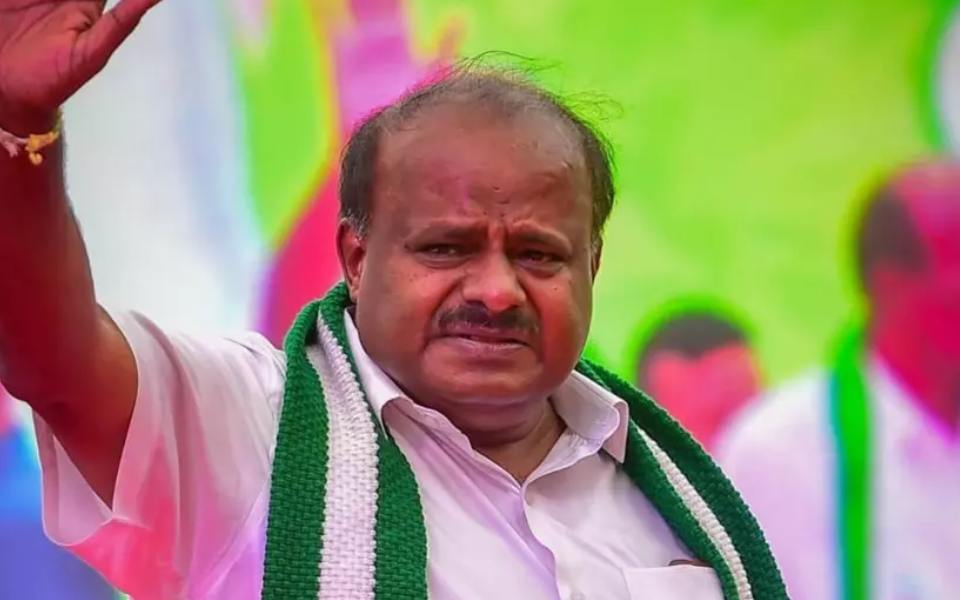In the general election of 2019, endless sectarian issues are being thrown up by the ruling BJP. To top issues like the Citizenship Amendment Bill, Kabristan, Vande Mataram, pseudo-nationalism, now the BJP has put up Pragya Thakur as its candidate from the Bhopal Lok Sabha seat.
Thakur is one of the key accused in acts of terror, particularly in cases related to the Malegaon, Ajmer, Makkah Masjid and Samjhauta Express bomb blasts, in which many innocents lost their lives and hundreds were injured.
Since joining the BJP a fortnight ago and being nominated as a Lok Sabha candidate Thakur has issued many statements, which are very disturbing at one level and at another show her mindset and the RSS-BJP’s.
After the Malegaon terror attack of 2008, in which six people died and over a hundred were injured, the Maharashtra Anti-Terrorism Squad chief heading the investigation, Hemant Karkare, after painstaking investigation got a vital clue.
It related to the motorcycle used in the Malegaon blast. Based on the chassis number of the motorcycle he caught hold of Pragya Thakur, in whose name the vehicle was registered.
This led to a series of arrests in which Lt Col Purohit, Major Upadhyay, Swami Dayanand Pandey and Swami Aseemanand among others were found to have been involved. The laptops, the conversation and other meticulously collected evidence led to the unearthing of a deeper plot, in which many of the accused were related to the RSS in some way.
One of the crucial pieces of evidence was the confession of Swami Aseemanand. In a legally valid confession in front of a magistrate he revealed the whole plot.
After NDA II, comprised mostly of the BJP, came to power in 2014, the National Investigation Agency started pursuing the cases with a different approach. The biggest evidence of this was the statement of Rohini Salian, the public prosecutor concerned, who stated that she had been told to go softer on the cases. She refused to do so and was removed from her role as public prosecutor.
In Thakur’s case, the NIA in 2016 approached the courts with a chargesheet exonerating her of the crime. It also stated that she had breast cancer and was unable to walk even with support. The court in its wisdom framed the chargesheet against her and granted her bail purely on medical grounds, without exonerating her of the crime.
As matters stand, she is accused of terrorist activity and is on bail on medical grounds.
After her nomination from Bhopal Thakur announced that Hemant Karkare was killed due to her curse (shrap). Karkare along with two other police officers died in the 26/11/2008 terror attack sponsored from Pakistan. Karkare, a brave officer chose to fight the terror attack on the streets and died from terrorists’ bullets.
Now Pragya Thakur’s statement is the worst insult to a martyr who died while performing his duties, trying to save the nation from a terror attack. Later she retracted her statement saying she was doing so as it may benefit the enemies!
Some pointed out that if she has the mythical power of dealing curses, why didn’t she do so to the terror masterminds sitting in Pakistan?
Thakur also alleged that Karkare had tortured her, so she cursed him. But the National Human Rights Commission investigated this issue and found no evidence of torture whatsoever. Karkare’s investigation was based purely on the grounds of evidence collected by him and his team of professionals.
In the aftermath of this insult many wellknown names from the police force, known for their integrity and upright work like Julio Rebeiro, Prakash Singh and Meeran Borwankar among others, came forward through articles or TV interviews to share their opinion of Karkare. As per them, Karkare was an upright, honest officer with a professional approach to his work. During his lifetime he was called deshdrohi (traitor, anti-national) by many leaders of Hindutva.
Prime Minister Narendra Modi came forward to defend the BJP’s nomination of terror-accused Pragya Thakur, by saying that to accuse her of being involved in an act of terror is to insult the five thousand year old Hindu civilisation!
Does Pragya Thakur represent the civilisational values of this land? Far from it. India’s past is plural, interactive and accepting with open arms of traditions which prevail within and without. India’s civilisation is represented by likes of Gautam Buddh, Bhagwan Mahavir, Kabir, Guru Nanak, Nizamuddin Auliya and Gandhi among others – who talked of love, tolerance and peace – and not by the likes of Pragya Thakur.
Thakur’s suffering from breast cancer is another mystery. The medical board headed by the JJ Hospital dean found her not to be suffering from any cancer. She claims to have been cured by cow urine and panchgavya. Panch Gavya is a mixture of cow milk, urine, dung, curd and ghee.
Such preposterous claims are in line with the blind faith being promoted by sectarian nationalism, which is propounded by the ideology to which she belongs. Her illness, and its cure by panch gavya is a mystery in itself.
Thakur also claims to have been part of the Babri monument demolition squad. The Election Commission has given her a notice on this issue. So this is a self confessed crime! Apart from being the major accused in Malegaon blasts for which the case against her is still on, she is confessing to her crime in the Babri demolition. What type of signal is being given by the BJP in naming her as a candidate for Parliament?
Surely the BJP is unfolding its Hindutva agenda to the full by now. Earlier with people like Vajpayee at the helm, the moderate image was the electoral compulsion. Now with increased communalisation after 2002, Ram Temple and Holy Cow, the BJP is feeling emboldened enough to reveal its true colour: divisiveness, violence and sectarianism.
It stands for something which is totally against the values of the Indian Constitution.
Courtesy: The Citizen
Let the Truth be known. If you read VB and like VB, please be a VB Supporter and Help us deliver the Truth to one and all.
United Nations, Apr 19: The US has vetoed a resolution in the UN Security Council on the latest Palestinian bid to be granted full membership of the United Nations, an outcome lauded by Israel but criticised by Palestine as “unfair, immoral, and unjustified".
The 15-nation Council voted on a draft resolution Thursday that would have recommended to the 193-member UN General Assembly “that the State of Palestine be admitted to membership in the United Nations.”
The resolution got 12 votes in its favour, with Switzerland and the UK abstaining and the US casting its veto.
To be adopted, the draft resolution required at least nine Council members voting in its favour, with no vetoes by any of its five permanent members - China, France, Russia, the United Kingdom and the United States.
Palestinian attempts for recognition as a full member state began in 2011. Palestine is currently a non-member observer state, a status that was granted in November 2012 by the UN General Assembly.
This status allows Palestine to participate in proceedings of the world body but it cannot vote on resolutions. The only other non-member Observer State at the UN is the Holy See, representing the Vatican.
Israel’s Foreign Minister Israel Katz praised the US for vetoing what he called a “shameful proposal.”
“The proposal to recognise a Palestinian state, more than 6 months after the largest massacre of Jews since the Holocaust and after the sexual crimes and other atrocities committed by Hamas terrorists was a reward for terrorism”, Katz wrote on X, after the US veto.
US Ambassador Robert Wood, Alternative Representative for Special Political Affairs, said in the explanation of the vote at the Security Council meeting on Palestinian membership that Washington continues to strongly support a two-state solution.
“It remains the US view that the most expeditious path toward statehood for the Palestinian people is through direct negotiations between Israel and the Palestinian Authority with the support of the United States and other partners,” he said.
“This vote does not reflect opposition to Palestinian statehood, but instead is an acknowledgement that it will only come from direct negotiations between the parties.”
Wood said there are “unresolved questions” as to whether Palestine meets the criteria to be considered a State.
“We have long called on the Palestinian Authority to undertake necessary reforms to help establish the attributes of readiness for statehood and note that Hamas - a terrorist organisation - is currently exerting power and influence in Gaza, an integral part of the state envisioned in this resolution,” he said, adding that “For these reasons, the United States voted “no” on this Security Council resolution.”
Wood noted that since the October 7 attacks last year against Israel by Hamas, US President Joe Biden has been clear that sustainable peace in the region can only be achieved through a two-state solution, with Israel’s security guaranteed.
"There is no other path that guarantees Israel’s security and future as a democratic Jewish state. There is no other path that guarantees Palestinians can live in peace and with dignity in a state of their own. And there is no other path that leads to regional integration between Israel and all its Arab neighbours, including Saudi Arabia,” he said.
The Palestinian Authority President, Mahmoud Abbas, sharply criticised the US veto, saying that it was “unfair, immoral, and unjustified, and defies the will of the international community, which strongly supports the State of Palestine obtaining full membership in the United Nations.”
Riyad Mansour, Permanent Observer of the State of Palestine, said that “our right to self-determination has never once been subject to bargaining or negotiation.
“Our right to self-determination is a natural right, a historic right, a legal right. A right to live in our homeland Palestine as an independent state that is free and that is sovereign. Our right to self-determination is inalienable...,” he said.
Getting emotional and choking up as he made the remarks, Mansour said that a majority of the Council members “have risen to the level of this historic moment” and have stood “on the side of justice, freedom and hope.”
He asserted that Palestine’s admission as a full member of the UN is an “investment in peace.”
On April 2, 2024, Palestine again sent a letter to UN Secretary-General Antonio Guterres requesting that its application for full UN membership be considered again.
For a State to be granted full UN membership, its application must be approved both by the Security Council and the General Assembly, where a two-thirds majority of the members present and voting is required for the State to be admitted as a full member.
Earlier in the day, Guterres, in his remarks to a Council meeting on the Middle East, warned that the region is on a “knife edge”.
“Recent escalations make it even more important to support good-faith efforts to find lasting peace between Israel and a fully independent, viable and sovereign Palestinian state,” Guterres said.
“Failure to make progress towards a two-state solution will only increase volatility and risk for hundreds of millions of people across the region, who will continue to live under the constant threat of violence,” he said.
The UN, citing the Ministry of Health in Gaza, said that between October 7 last year and April 17, at least 33,899 Palestinians have been killed in Gaza and 76,664 Palestinians injured. Over 1,200 Israelis and foreign nationals, including 33 children, have been killed in Israel, the vast majority on October 7.
As of April 17, Israeli authorities estimate that 133 Israelis and foreign nationals remain captive in Gaza, including fatalities whose bodies are withheld.

